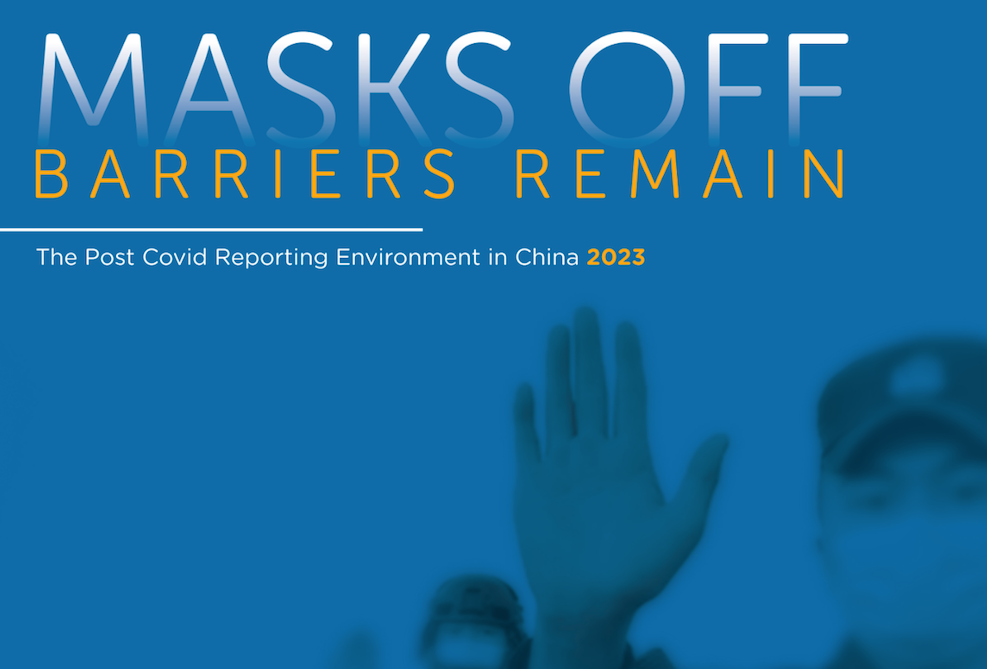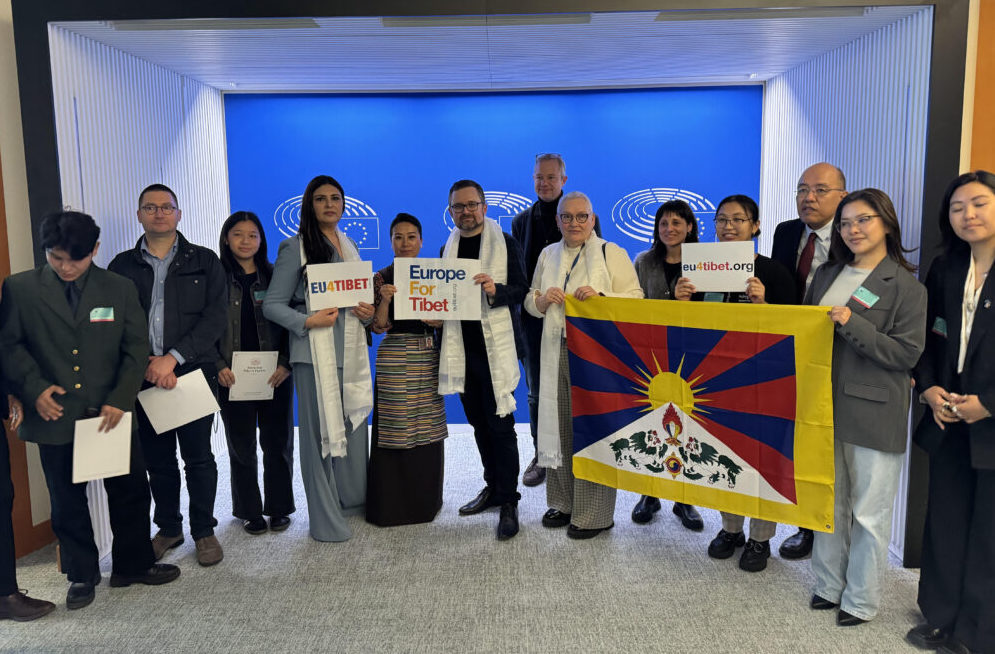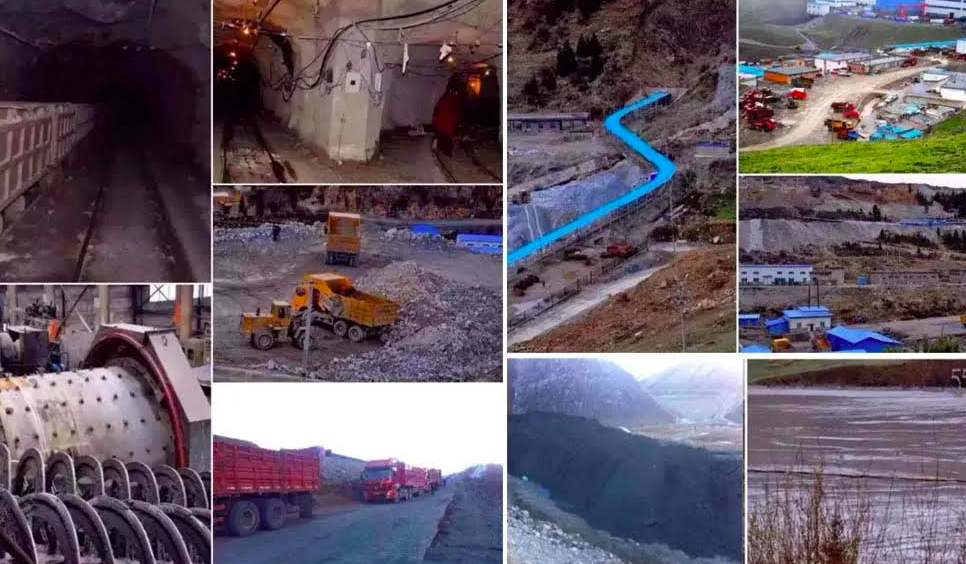A long expected second round of the Sino-Tibetan contact started on Sunday 25 May with the arrival in Beijing of a delegation representing the Dalai Lama. Neither the itinerary nor the duration of the trip appears to have been clearly agreed upon. Both may depend on whether the Chinese and the Tibetan sides manage to reach an agreement on how to deal with existing ambiguities in regard to Taiwan, as well as the status of the Tibetan areas outside the Tibet Autonomous Region (TAR). Ultimately continuation of the contact will only be possible if a clear agreement can be reached on these questions.
The visit of the Tibetan delegation demonstrates the willingness of the new Chinese leaders to continue the contact with the Dalai Lama which was started in September 2002, during the very last weeks of tenure of the outgoing Communist Party leadership. It had been expected for several weeks and TIN sources point out that it was delayed by the SARS-crisis.
The visit of the delegation takes place at the same time as the first overseas travel of the new Chinese President Hu Jintao. Hu will pay state visits to Russia, Kazakhstan and Mongolia. He will also meet representatives of all major Western nations during the G 8 meeting to be held in the French city of Evian. Both the US and the EU have encouraged China to engage in substantial dialogue with the Dalai Lama. On 8 May 2003, US President George Bush submitted a report to the US Congress on its administration’s efforts in this regard. A resolution of the European Parliament dated of 6 July 2000 considers “to formally recognize the Government of Tibet in exile as the legitimate representative of Tibet” if no agreement “on a new status for Tibet” has been reached between the People’s Republic of China and the Dalai Lama’s Government in exile by 6 July 2003.
The second Tibetan delegation consists of the same people as the first one, which visited the PRC in September 2002. It is led by Lodi Gyari, Special Envoy of the Dalai Lama in the United States, and Kelsang Gyaltsen, Special Envoy of the Dalai Lama in Europe. Sources point out that the Chinese authorities insisted on Lodi Gyari leading the delegation before the departure of the first delegation to China in 2002. Other sources in diplomatic circles add that the predilection of the Chinese authorities for Lodi Gyari is due to his alleged influence in the US Congress.
The delegation of September 2002 kept a very low profile. As far as TIN can establish it was only mentioned once in the Chinese media. During the National People’s Congress meeting in March 2003, China Daily quoted a spokesman from the Chinese Ministry of Foreign Affairs who referred to the delegation as “Tibetan compatriots residing overseas who were approved to visit the motherland and see their relatives, (..) the government department concerned made due arrangements to receive them”. The second visit of the delegation is expected to be similarly low key.
‘Dialogue’ vs. ‘negotiation’
In the early 1980s, Deng Xiaoping had declared China’s willingness to discuss any issue with the Dalai Lama, except the independence of Tibet. During a landmark speech in the European Parliament in Strasbourg in 1988, the Dalai Lama therefore withdrew the demand for independence in favour of a “genuine autonomy”. This course, though highly controversial among Tibetans in exile, has remained the official policy of the Tibetan government in exile ever since. Despite this, China has still ceased communication with the Dalai Lama since 1993.
The resumption of contact in September 2002 appears to have taken place under fundamentally different conditions. Both, the Tibetan and the Chinese side seem to agree on the necessity of establishing and maintaining ‘contact’, but it is questionable whether a consensus exists on the perception of this ‘contact’ and the perspective of its further development. All declarations issued by the Dalai Lama and the Tibetan government in exile clearly consider the ‘contact’ a first step towards ‘negotiations’ on the future status of Tibet. So far, though, the Chinese side has only mentioned its readiness in principle to conduct a ‘dialogue’ with the Dalai Lama. In an interview given to the official news agency Xinhua on 21 May, Foreign Ministry spokesperson Zhang Qiyue defined the Chinese government’s concept of a ‘dialogue’ as “to have contact and consultation with Dalai”. These divergent interpretations of the contact reflect radical differences in the approach towards Tibetan affairs by both parties. The Tibetan side understands the Tibetan question as an issue between the Tibetan and the Chinese nations, and envisages its solution through ‘genuine negotiations’ aiming to accommodate the interests of both parties within the framework of an autonomous status. The Chinese side, however, does not even acknowledge the existence of a ‘Tibetan question’. Instead, it appears to envisage ‘dialogue’ only within the existing status quo. The choice of the new leadership recently installed in the TAR appears to confirm this concept of continuity of the status quo, as does the recent promotion of Ragdi, a vehement critic of the Dalai Lama, to vice-Chairman of the National People’s Congress (NPC), a position which makes him potentially one of the key counterparts of the Tibetan delegation.
The enormity of the chasm between the positions of the Chinese and the Tibetan side is particularly apparent in the preconditions for a dialogue put forward by both sides. The Chinese authorities state that they will not start a ‘dialogue’ before the Dalai Lama officially acknowledges that Taiwan, like Tibet, is an “inalienable part of the Chinese territory”. The Tibetan side on its part states that ‘negotiations’ can only take place if China agrees to apply their possible outcome to all of Tibet, i.e.. not only the TAR, the only territory which China acknowledges as ‘Tibet’, but also all other regions of the People’s Republic of China (PRC) populated by Tibetans.
These contentious issues are likely to be the main topics of the discussions between the Tibetan delegation and the Chinese authorities. So far the Dalai Lama has avoided acknowledging the Chinese position in regard of Taiwan, but there are signs that he might be willing to try and seek a compromise regarding this issue. Thus, he recently declined an invitation to visit the island, explicitly mentioning the likely adverse effects of the visit on the continuation of the contact. How a compromise in this question might look, and whether the Chinese Government would tolerate anything other than a full endorsement of its demand in this highly sensitive issue, remains to be seen. All Western nations, including those calling on China for a dialogue with the Dalai Lama, have endorsed the PRC’s ‘one country policy’ by severing diplomatic ties to Taiwan and acknowledging the PRC’s government as the only legitimate representative of China.
There are so far no signs that the Chinese authorities would be ready to accept discussion of issues related to Tibetan regions outside the TAR with the envoys of the Dalai Lama.
A failure to reach a breakthrough in both these contentious issues is likely to generate a deadlock in Sino-Tibetan contact.









